Of all the brilliant ideas the house’s former owner came up with, I recently discovered that one was to disconnect the attic fan. I have no idea why he did that, aside from being a cheap bastard that didn’t want to pay the costs of running a small electric motor.
Of course this led to some problems. Notably, our bathroom exhaust and kitchen stove hood fans vent to the attic. So we’re continually pumping smoke, oil, and steam up there. We gradually figured this out as subtle cues manifested, like water spots on the ceiling and the smoke detector at the other end of the house going off when cooking.
But despite clear rooftop evidence of a fan once existing, and our neighbor’s assurance that indeed it used to be there, my attic spelunking expedition did not reveal any such evidence. Nor did I know where to explore. Nor did I feel so inclined as to lengthen my crawling journey through insulation. Nay, an alternate solution was needed.
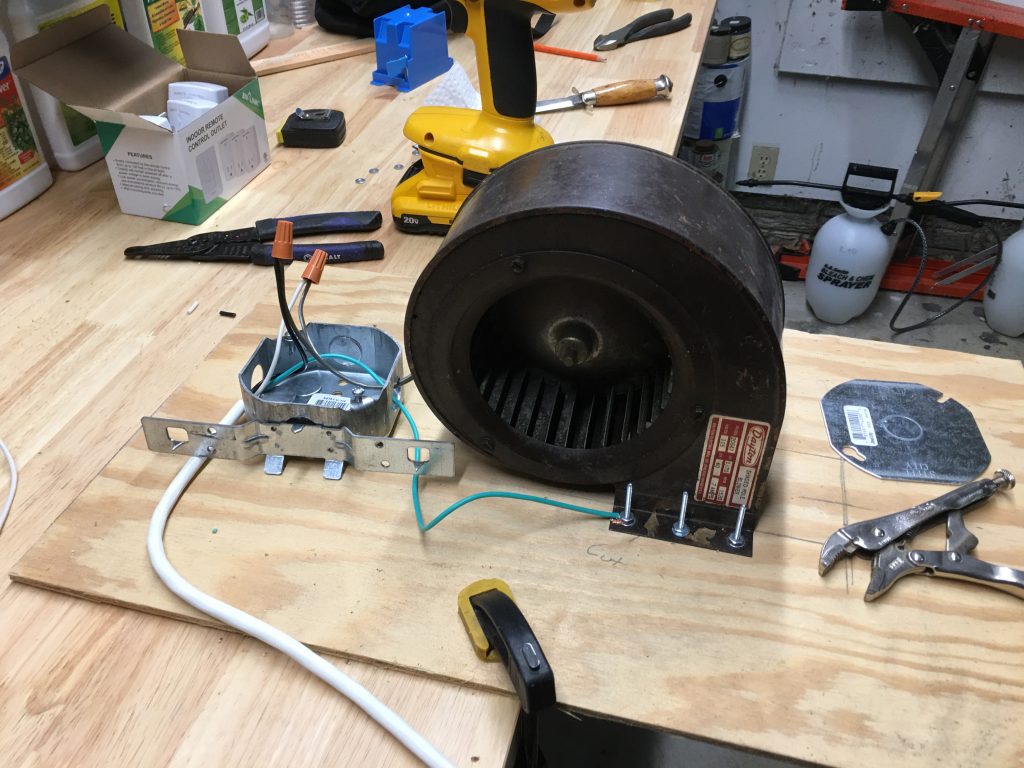
This is an old rotary blower (courtesy of the Village Elder), which I spliced into an extension cord and mounted to a sheet of plywood cut to fit the width between rafters. The idea being, that I would mount it against the existing passive heat vent, thereby turning it into a powered vent.
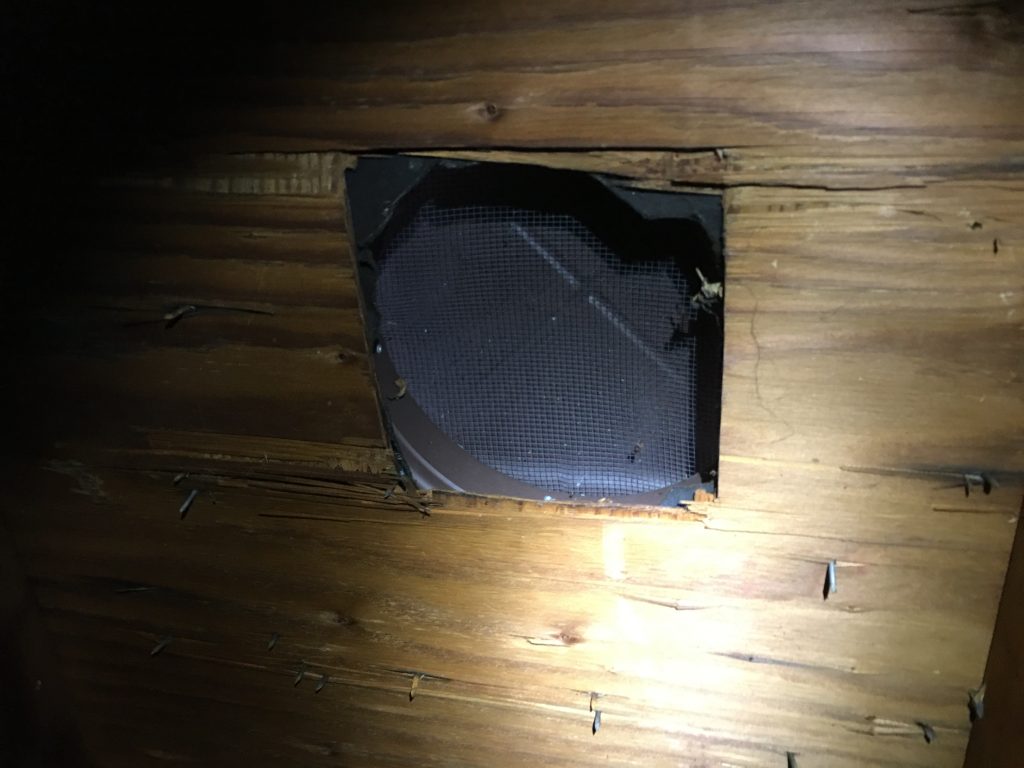
Some 2x4s and deck screws later, with a side helping of profanity, and the fan was affixed.
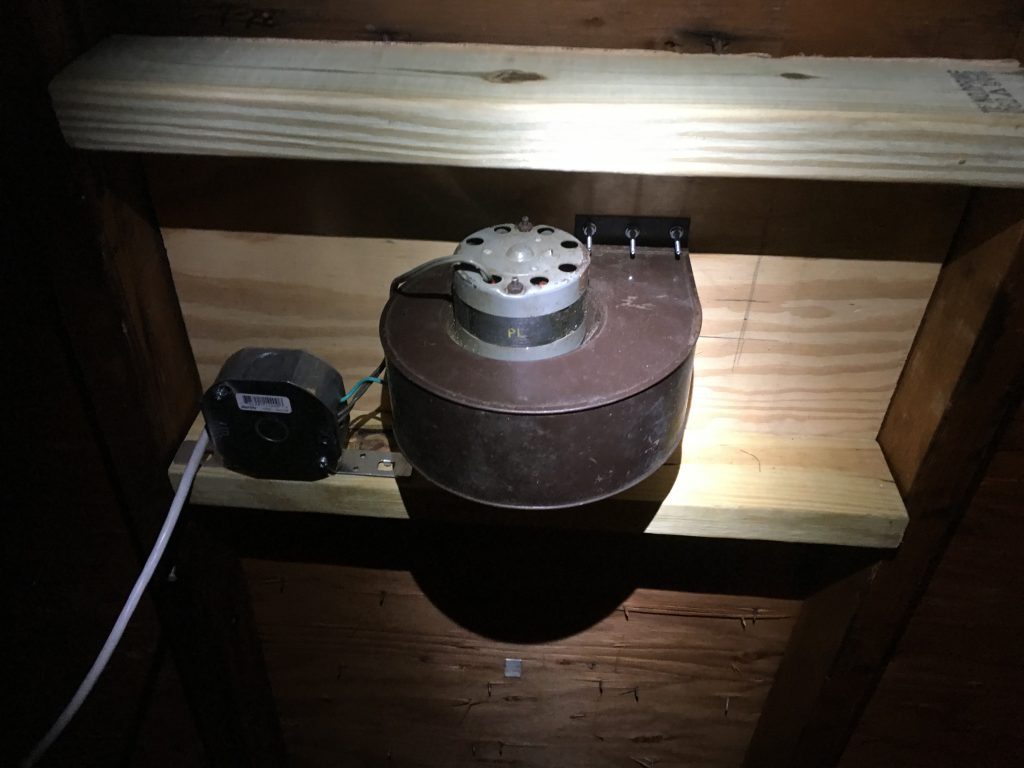
Of course, the outlet up there I had originally planned to plug it into had to be disconnected, also another dumbass idea of the prior owner no doubt, so I had to fix that, which also revealed other problems: spliced wires not properly contained in a junction box and missing grounding wires. Projects for another day. For now, I just wanted this working. Minimum Viable Product, as they call it in the Agile world.
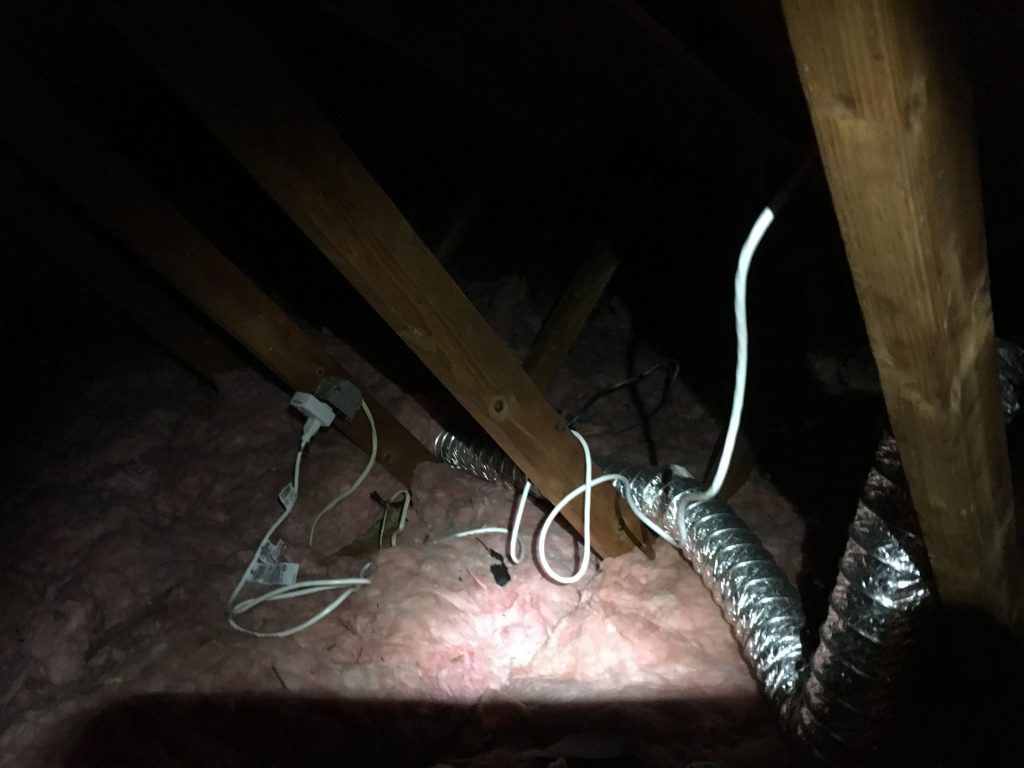
Finally, I employed a fancy little wireless switch, so I could control it without climbing up there. And I installed a weather sensor too, so I knew when it was getting too humid.
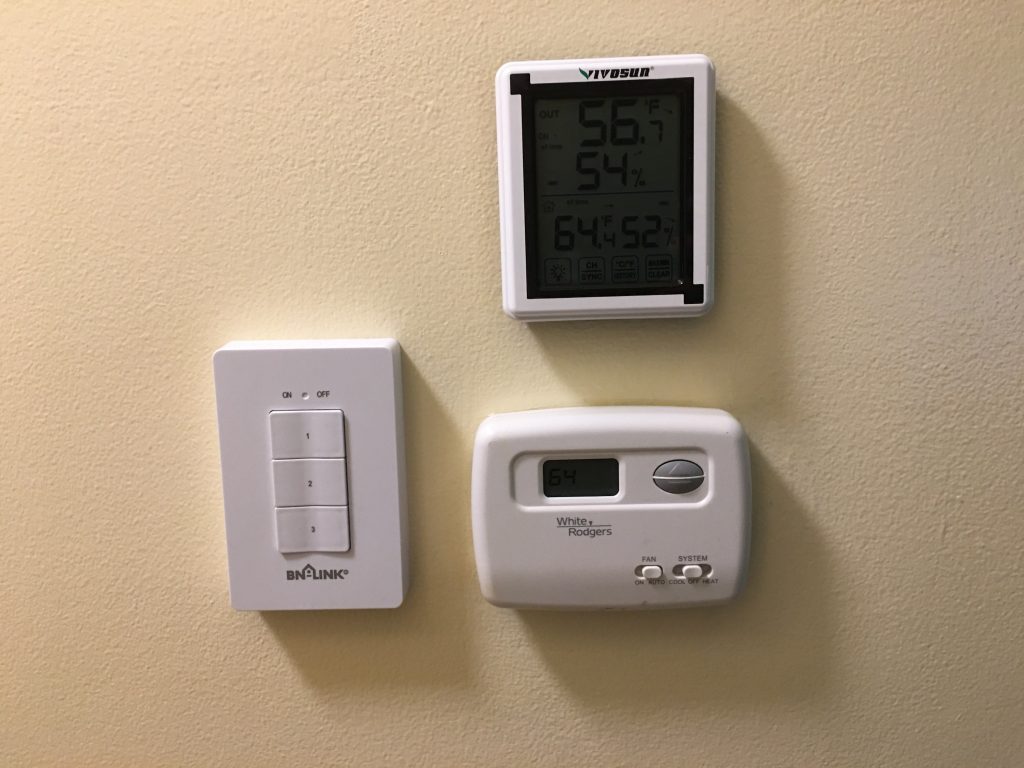
So how does it work? It works, but it’s definitely under-powered for the amount of air I’m asking it to move. I plan to install a second fan at the other end of the house eventually. But for now, at least the shower steam won’t rot the roof out. Small victories.
–Simon
